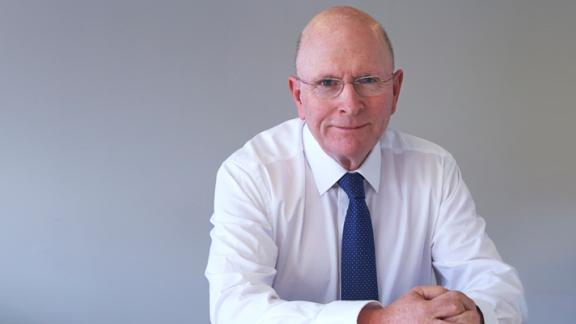Get it right for people with learning disabilities, and you get it right for everyone

Paula Lavis of NHS Clinical Commissioners, Christine-Koulla Burke and Pat Charlesworth of the Foundation of People with Learning Disabilities explain this too often misunderstood disability and emphasise the right for equality.
Even before the COVID-19 pandemic, there was a lack of awareness and understanding of this group. There has been well publicised, abusive practice in what should be a caring environment. This should have ended after Winterbourne, but unfortunately there have been many others, most notably and recently Whorlton Hall. Many people with a learning disability (LD), feel that they are forgotten about and their lives don’t matter.
There is lots of good policy which aims to address this, such as Transforming Care, training for health and social care staff and the NHS Long-Term Plan, but then along came COVID-19. The pandemic has highlighted the inequalities that people with LD often experience.
People with learning disabilities or autism, will have different levels of disability and vulnerability, with some more at risk of the impact of COVID-19 than others. One of the first issues that became apparent was that people with LD and other disabilities were being given a Do Not Attempt Cardiopulmonary Resuscitation (DNACPR) order without their consent. Despite a letter from NHS England and Improvement, we were hearing for some time after that this was still happening. Hopefully, that has now stopped and the guidance in this letter is being carried out.
We know that between 10 April and 15 May 2020, there was a 134 per cent increase in the deaths of people receiving care from learning disability and/or autism services. Out of 386 people who died, 206 had suspected or confirmed COVID-19. The number of people with LD dying may be higher, as they will be living in other settings as well.
People with LD were also falling through gaps in social care as a result of Care Act Easements. So not always receiving the care they need.
The Joint Human Rights Committee inquiry last year highlighted that young people detained in inpatient facilities had their rights abused. The Committee’s inquiry into the government’s response to COVID-19, found that now that where these units are closed to the outside world “the risk of human rights abuses are even greater”.
There are plenty of negatives to focus on, but there are things that commissioners and providers can learn from and good practice to work from. First off, what people with LD want is similar to what anyone else wants. As an advocate for learning disabilities said on Twitter, “If you get it right for people with learning disabilities, you get it right for everyone.”
As Pat, co-author of this blog, has often stated, we are all human beings and should be treated as such. It is important to help people make informed choices in how they are supported and what they want to do. To exercise their rights like everyone else. To live a safe, happy life with their family and filled with friendships and relationships.
Examples of good practice and useful resources
Central London and North West London NHS Foundation Trust has a very person-centred approach for the young people with learning disabilities in their care. Surrey Borders Partnerships NHS Trust has produced a great video, which uses a spoken poem to talk about making reasonable adjustments. It has also produced some very useful videos for people with LD – but of course not everyone will have Internet access. The Mental Health, Learning Disabilities and Autism COVID-19 Response Cell on The Future NHS Collaboration platform includes examples of good practice for learning disability services. It is a useful, free resource, but does need a login.
The Yorkshire and Humber Operational Delivery Network for Learning Disabilities and/or Autism is looking at the feasibility of an all-age service for this group of people. This would be revolutionary. For many people, learning disability or not, developmental age isn’t always the same as chronological age, but services are designed as if they are one and the same.
Our understanding of LD and autism, and how to communicate and work with people with these conditions is essential. Health Education England is working on this. Disability Matters and MindEd have some very useful, free e-learning for the UK workforce.
This understanding needs to go beyond the NHS and how we see people with LD within our society. If you have a learning disability you are far more likely to have a mental health need, be unemployed, or experience hate crime. None of these things are inevitable for this group. We need a more compassionate approach to care and an asset-based approach, where we see what people with LD can do and bring to society, and not just focus on their difficulties and what they can’t do.
Paula Lavis is member network and policy manager at NHS Clinical Commissioners. Follow the organisation on Twitter @NHSCCPress
Christine-Koulla Burke is learning disabilities lead at the Foundation for People with Learning Disabilities. Pat Charlesworth is chair of the foundation. Follow the organisation on Twitter @FPLD_Tweets



